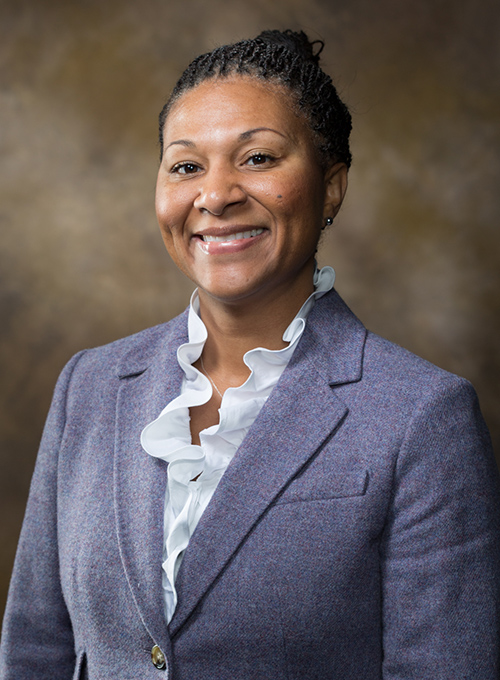Stephanie Lusk, University of Arkansas assistant professor of rehabilitation education and research, is helping to develop a universal treatment curriculum for counselors who work with people diagnosed with substance use disorders. This project is spearheaded by the Colombo Plan, which is based in Sri Lanka, Colombo, and receives funding and support from the U.S. Department of State and the United Nations Office on Drugs and Crime.
The primary focus of this new universal treatment curriculum is to inform, train and educate counselors about the many facets of addiction treatment and recovery.
Last December, Lusk made a presentation at the United Nations Office on Drugs and Crime conference in Vienna, Austria. She has been involved in the development of this curriculum for a year as an Expert Advisory Group member as well as an Expert Working Group member. She presented information on the process of how the universal curriculum is conceptualized, written, pilot tested, and eventually used for mass trainings.
When asked why there was a need for this type of curricula, Lusk said, "In the United States, there are specific requirements individuals must meet in order to become either certified or licensed as addictions counselors. This includes completing coursework specific to the assessing, diagnosing and treatment of substance use disorders. Individuals must also complete some form of practicum or internship as part of their course of study. This helps to ensure that those who will work as addictions professionals understand the components of the disease and what needs to be done in order to properly treat it. These individuals must also successfully pass an exam that has been developed and standardized by other professionals in the field. In other countries, this is not the case. Most individuals working in in treatment facilities in these areas have not had this level of education and training."
The requirements for becoming a counselor are not equal in all locations of the world and in many instances anyone can become a counselor, she said.
The universal treatment curriculum provides a way to educate and train people, specifically in African and Asian countries, even when they have few resources.
"Some people don't have all the resources needed to become competent and proficient counselors," said Lusk. "This universal curriculum is a way to take the training to them. When counselors are properly trained, the likelihood of successful treatment completion and recovery rates increases."
Lusk developed three parts of the curriculum that involve advanced physiology and pharmacology, medication-assisted treatment for opioid and alcohol dependence, and co-occurring disorders. These three curricula are being piloted this month and will then be sent to the U.N. Office on Drugs and Crime for final review.
Lusk edited Counseling for the Addicted Family: Implications for Practitioners. She co-wrote one chapter of the book, "The Rationale for Family Therapy in Addictions" with Chinwendu Okoronkwo, a U of A graduate assistant.
Lusk joined the faculty of the College of Education and Health Professions in 2012. Last year, she was named Rehabilitation Educator of the Year by the National Council on Rehabilitation Education.
Topics
Contacts
Hannah Ness, communications intern
College of Education and Health Professions
479-575-3138,
Heidi Wells, director of communications
College of Education and Health Professions
479-575-3138,
